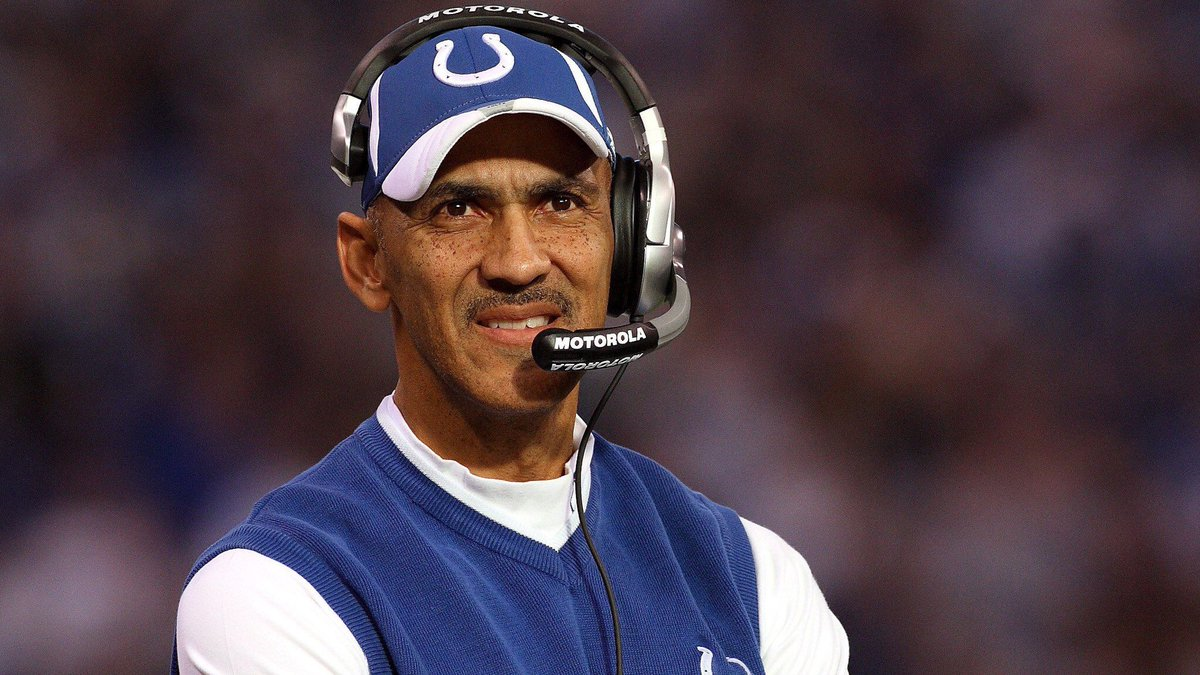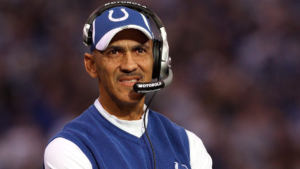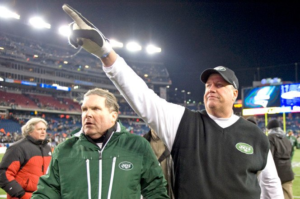Is Trend Spotting A Crucial Element Of NFL Success?

Trends have become a prevalent part of sport. More often than not, when a team is struggling for results, the manager or head coach is shown the door. It also works in the other direction when the man in charge is rewarded with a lucrative deal after a spell of impressive form.
The NFL can provide the ultimate test of patience as proven by teams across the league. It’s rare that coaches and sides enjoy immediate success. Bill Belichick won the Super Bowl with the New England Patriots in his second season with the club and has dominated since, creating one of the most imperious dynasties in the history of the sport.
Sean McVay reversed the fortunes of the Los Angeles Rams in his first season. However, there’s no guarantee that the Rams will continue to thrive under his tenure. His stock is high at the moment, but backing them to maintain their form and win the NFC West crown once again next season remains an unclear prospect given the lack of trend information. This would present a risk in betting on them, as the saying goes, ‘the trend is your friend’.
There’s often a lot of luck involved in spotting trends but riding them to completion can prove lucrative for punters. We know there’s somebody out there who banked on Tim Tebow making a comeback or on the New Orleans Saints to go eight weeks unbeaten at home – and it worked. We’ll now break down examples of good and bad trends in the recent history of the NFL.
Tony Dungy – Indianapolis Colts 
Dungy arrived at the Colts off the back of a frustrating period with the Tampa Bay Buccaneers. He had improved the Bucs significantly, taking a franchise that had not reached the playoffs in 13 years back into the post-season. In six seasons in Florida, the team qualified for the playoffs four times, winning the NFC Central Championship in the 1999 campaign. However, Dungy failed to lead the Buccaneers into the Super Bowl, suffering a narrow defeat at the hands of the St Louis Rams, who went on to win the Vince Lombardi trophy. Tampa Bay reached the post-season once again in 2000 and 2001, only to suffer back-to-back defeats to the Philadelphia Eagles.
As a result of the playoff failures, Dungy was fired by the Bucs. The Colts brought him in to improve a defense that had struggled under Jim Mora. They improved rapidly from 6-10 in 2001 to 10-6 in 2002, only to suffer a hammering in the first round of the post-season against the New York Jets. Indianapolis stormed into the playoffs, winning the AFC South with a 12-4 record. Peyton Manning led them past the Denver Broncos and the Kansas City Chiefs. However, the Super Bowl eluded Dungy again, suffering a defeat at the hands of the Patriots in the AFC title game. Manning enjoyed one of the finest seasons recorded by a quarterback, throwing 49 touchdowns. The Colts hammered the Broncos but New England loomed large in the Divisional Round to end their season again.
The breaking point for the Colts could have come in 2005. They earned the top seed in the AFC but lost in the Divisional Round to the Pittsburgh Steelers. With the trend of playoff failures, it would have been easy for Indianapolis to lose faith with their coach. However, owner Jim Irsay kept the faith and was rewarded when they finally got over the hump in 2006. They eased past the Chiefs and Baltimore Ravens before confronting the Patriots in the AFC Championship game. This time Manning outduelled Tom Brady to reach the Super Bowl and the Colts went on to torment Rex Grossman and the Chicago Bears to win the Vince Lombardi trophy. Indianapolis had the formula for success and were loyal to Dungy and it eventually yielded the ultimate triumph.
Rex Ryan – New York Jets 
Ryan’s case is the opposite of Dungy and suggests that keeping faith is not always the right answer. He was hired by the Jets following a successful spell as defensive coordinator of the Ravens, while also benefitting from being the son of the great Buddy Ryan. Ryan did not mince his words on his arrival in the AFC East, confidently stating that he was not in the division to “kiss the rings” of Belichick and the Patriots. His brash words were in contrast to the reserved approach of former Belichick disciple Eric Mangini, who Ryan succeeded. New York had a new quarterback to pair with their new head coach, with first-round pick Mark Sanchez replacing Brett Favre.
The Jets got off to an excellent start, with Ryan’s aggressive style of defense yielding three wins on the bounce, including a triumph on home soil over New England. The club recorded a nine-win campaign, the same as their 2008 season. However, on this occasion, they qualified for the post-season. New York’s confidence grew in the playoffs, putting forward outstanding performances to knock off the Cincinnati Bengals and the Chargers in the opening two rounds. Only Manning and the Colts prevented them from reaching the Super Bowl in Ryan’s first term.
They grew in confidence in 2010, with the defense becoming a truly elite unit. Antonio Cromartie’s arrival gave them an elite cornerback tandem with the NFL’s Defensive Player of the Year Darrelle Revis. New York won 11 games for the first time since 1998, although they were denied the AFC East crown by the Patriots. Ryan’s men beat the Colts on the road in the Wildcard Round before stunning Belichick and New England at Gillette Stadium one week later to reach the AFC title game for the second year on the bounce. However, the season would end with an inept display against the Steelers, meaning they missed out on reaching the Super Bowl.
Confidence was not in short supply once again for the 2011 term. The majority of the same players remained; only the success began to wane. The talk continued from Ryan, although even his defenses were starting to struggle. Perhaps the breaking point came in a hammering at the hands of New England on home soil on Thanksgiving. Ryan’s confidence never seemed to recover, although owner Woody Johnson kept faith with his head coach. However, 8-8 in 2011 became 6-10 in 2012. There was a slight improvement in 2013, although issues on offense remained an issue as Sanchez did not develop under Ryan’s coaching. The final straw came in 2014 with a 4-12 record, with Ryan eventually relieved from his duties. Once Ryan and his team were on the slippery slope, it was clear he was not the man to reverse their fortunes. Johnson failed to act and has damaged the long-term success of the team, with the Jets perennially bringing up the rear in the AFC East in the years since.

